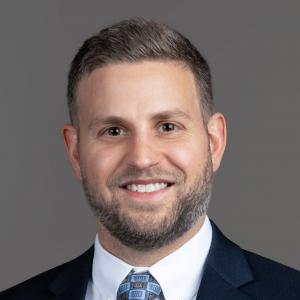Recently, the Supreme Court of Maryland (formerly, the Court of Appeals of Maryland) dealt a serious blow to businesses hoping to recover payments from their commercial liability insurers for losses caused by the COVID-19 pandemic shutdown.
Maryland’s highest court took on the question of whether coverage under a commercial property insurance policy covering “all risks of physical loss or damage” extends to the loss of functional use of a business’s property due to the presence of coronavirus/COVID-19. The Court answered this question “no,” because the temporary loss of functional use of property does not constitute “physical loss or damage.”
In this case, Tapestry, Inc., which operates over 1,400 retail stores in the U.S. and abroad, submitted claims for losses exceeding $700 million to its insurer under two commercial property insurance policies after it was forced to shut down its stores due to the COVID-19 pandemic. Under both policies, the insurer provided coverage for “all risks of physical loss or damage,” subject to applicable exclusions. Notably, the policies contained a coverage extension for “Interruption by Communicable Disease,” which covered business losses if the insured was required to close its stores due to a communicable disease event. Importantly, this extension did not require a pre-condition of “physical loss or damage” but contained an aggregate sublimit of only $1 million per occurrence, as opposed to the general policy limit of $1 billion per occurrence. Tapestry’s insurer provided coverage under the communicable disease coverage extensions but denied coverage under the general policy.
The United States District Court for the District of Maryland initially heard the parties’ claims and then certified a question to the Supreme Court of Maryland of whether the general policy covered the loss of functional use of property under Maryland law due to the presence of coronavirus/COVID-19.
In response, the Supreme Court of Maryland ruled that “physical loss or damage” must involve tangible, concrete, and material harm to the property, or deprivation of possession of the property, and that the presence of coronavirus/COVID-19 in the air and on surfaces did not cause “physical loss or damage” as that phrase is used in the subject policies. The Court looked to the plain and ordinary meaning of those terms and consulted cases from other jurisdictions that interpreted similar policy language and reached the same conclusion. The Court rejected Tapestry’s contention that the policy language was ambiguous or that “physical loss or damage” could include the loss of “functional use” of property. The Court further rejected Tapestry’s argument that the presence of coronavirus/COVID-19 in the air or on surfaces caused structural alteration or a “loss” of that property, regardless of the resulting risk to human health. Finally, the Court distinguished this case from others involving hazardous substances, such as asbestos or ammonia, because those cases either involved some physical alteration of the property, rendered the property “practically useless for anything” (as opposed to useless for the insured’s intended purpose), or involved different policy language altogether.
Given the novelty of the disease, the Court declined to state as a matter of law that coronavirus/COVID-19 does not cause damage to property. Rather, the Court based its decision on the factual allegations made by Tapestry, Inc. and the language of the policies. The Court also left open the question of whether a temporary loss of possession of property would qualify as “physical loss or damage.”
This latest decision underscores the importance of the specific terms in commercial liability insurance policies. For Tapestry, Inc. the difference between $1 million and $1 billion in coverage from pandemic losses essentially hinged on a single word: “physical.” As a result, business owners and executives should review their existing policies to ensure they are adequately protected from losses that do not involve “physical loss or damage,” especially in the event of a future shutdown.
For more information on this or other business issues, contact Casey Brinks or a member of the litigation department.
This information has been prepared by Tydings for informational purposes only and does not constitute legal advice.
